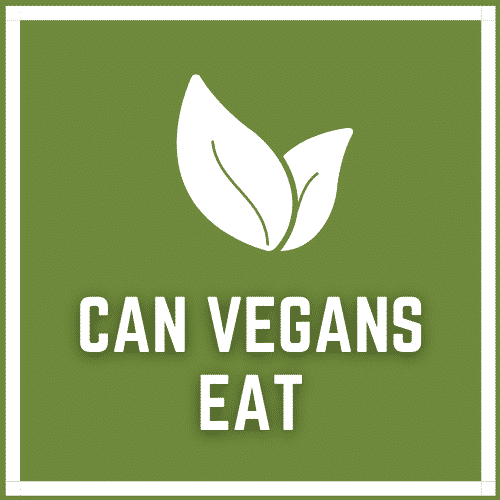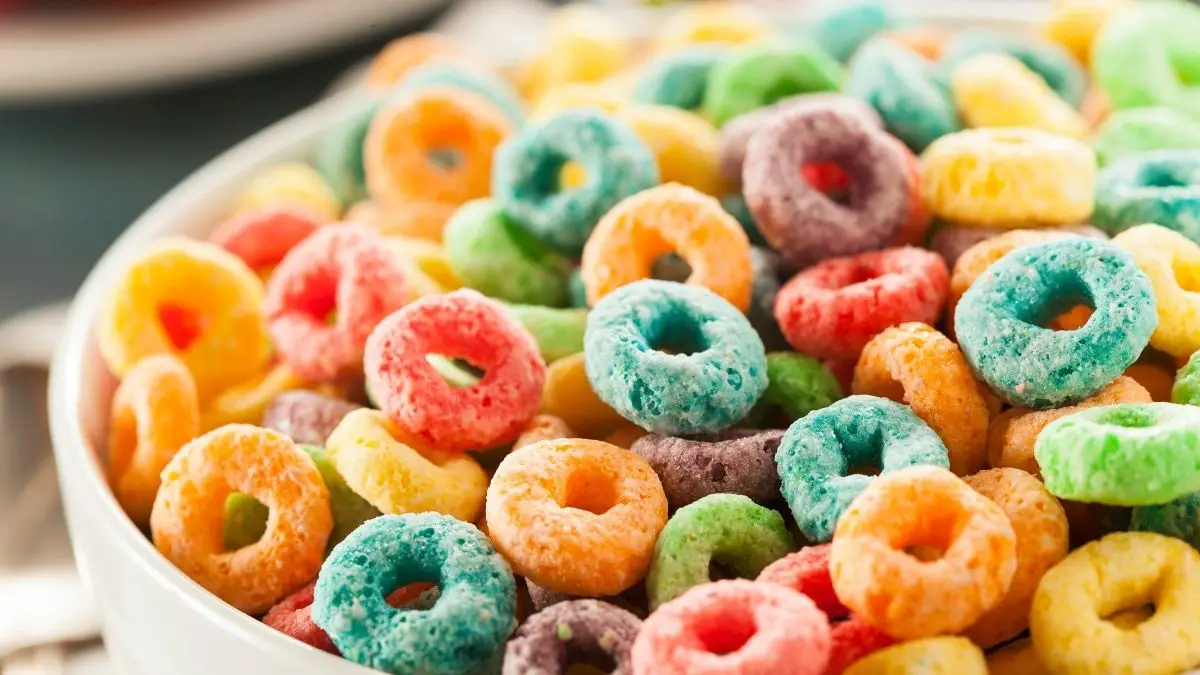Answer: No. Fruit Loops are not suitable for vegans because they contain vitamin D3.

If you are someone who loved eating Fruit Loops as a kid and has turned vegan, you might be wondering, are Fruit Loops vegan?
If you’re wondering why Fruit Loops aren’t vegan, you should know that the popular cereal brand contains vitamin D3. This vitamin is derived from animal products. Additionally, Fruit Loops contain certain questionable ingredients. These are refined sugar as well as artificial coloring agents. These substances are not considered vegan.
If you’re someone who has decided to go vegan, it’s important to explore your options.
Table of Contents
Fruit Loops Contain Vitamin D
Yes, vitamin D or cholecalciferol has been added to Fruit Loops.
Although this is a vitamin that doctors recommend, it goes against what vegans stand for.
You may say it is only a vitamin; how is it not vegan? Great question! Let’s explore this further.
Why Is Vitamin D Non-Vegan?
Vitamins are generally very healthy for us, so why is vitamin D not vegan?
Let’s understand the basics of vitamin D. This vitamin is generated in the body when exposed to natural sunlight. Many non-vegan food sources such as egg yolks, liver, and butter also contain this vitamin.
However, the vitamin D that manufacturers add to cereal is derived from a lanolin wax. Sebaceous glands of sheep secrete this type of wax.
How Is Lanolin Extracted?
Lanolin is extracted from sheep by sheep-rearing. In this process, the woolen fleece growing on the sheep is cut using clippers. It is then washed, and lanolin is separated from the water.
The lanolin looks like a gold wax-based product. This substance is then put into many bottles and sent off to a specific kind of refinery.
Fruit Loops Contain Refined Sugar
Sugar can be obtained from two sources. These sources are beets and sugar cane. Both types of sugar have the same taste, but the extraction and purification processes differ. The sugar extracted from beets is 100% vegan. But the sugar derived from the other source, sugar cane, is not always vegan.
The canes are first crushed when the sugar from the sugar canes and the juice is removed. The juice is then filtered and refined. It’s further processed by bleaching, which is done with bone char. Bone char is what is obtained by burning cattle bones.
According to PETA, these bones are obtained from India, Afghanistan, Argentina, and Pakistan.
Some manufacturers use alternative ingredients like activated charcoal or perhaps ion-exchange resins. Unfortunately, this might not be the same with Fruit Loops.
Artificial Coloring Agents
Fruit Loops contain the artificial colors red 40, yellow 6, and blue 1.
These coloring agents are known to be tested on animals to ensure they don’t cause side effects.
These animal testing procedures are pretty cruel. The animals used for these tests are usually killed after the experiment. Even in 2017 and 2018, various tests were performed on animals to ensure the safety of human beings. These reports may be crushing your heart but are essential information for you.
However, a few vegans might be fine with this, and others might hate it.
Fruit Loops Vegan Alternatives
Cascadian Farm Organic Fruitful O’s
This cereal has a fruity flavor and is made of whole wheat. It also contains oats and organic corn. It is made using unrefined organic sugar and does not have vitamin D or artificial coloring.
Cheetah Chomps
This cereal is an organic cereal that contains veggies and fruits.
This cereal is USDA organic, has no gluten, and is a non-GMO product. However, based on customer reviews, Cheetah Chomps is not as great as Cascadian Farm Organic Fruitful O’s.
Endnotes
For people who have just turned vegan and are Fruit Loop lovers, their first question is, is Fruit Loops vegan? There is so much information on the Internet; you can easily get confused.
Many cereal brands do contain non-vegan ingredients. At first, some components don’t look like they can be non-vegan, but when you dive deep into them and research, you will realize they are non-vegan. This is the case with vitamin D3, found in Fruit Loops and many similar cereal brands.
Luckily, there is a plant lichen, which contains a vegan form of vitamin D3. It usually grows over rocks and trees in Asia, Scandinavia, and North American forests.
There are supplements with this form of vitamin D, but it is still not so common in cereals.

